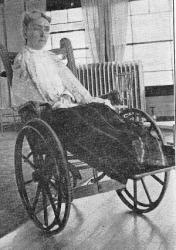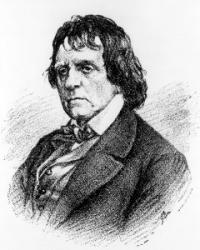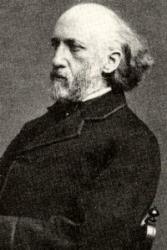Planning worship?
Check out our sister site, ZeteoSearch.org,
for 20+ additional resources related to your search.
- |
User Links
Person Results
Melancthon Woolsey Stryker

1851 - 1929 Person Name: M. W. Stryker Author of "God speed the gospel! O Father, in pity" in The Primitive Methodist Church Hymnal Stryker, Melancthon Woolsey, D.D., son of the Rev. Isaac Pierson Stryker, was born at Vernon, New York, Jan. 7, 1851, and educated at Hamilton College (1872) and Auburn Theological Seminary (1876). In 1876 he entered the Presbyterian ministry as Pastor at Auburn, New York. In 1878 he removed to Ithaca, N. Y.; in 1883 to Holyoke, Massachusetts, and in 1885 to Chicago, Illinois. He received his degree of D.D. from Hamilton College in 1889. He has edited Christian Chorals, 1885 ; New Alleluia, 1880-86; and Church Song, 1889. He was also joint editor with H. P. Main of The Church Praise Book, 1882. He has also published Hymns and Verses, 1883, and Song of Miriam, and Other Hymns and Verses,
1888. To two of these works which have been designed for daily use in divine worship Dr. Stryker contributed the following original hymns:—
i. The Church Praise Book, 1882.
1. Burst forth, 0 Bridegroom, from Thy chamber bright. Second Advent Desired. (1880.)
2. Death cannot make my soul afraid. Death Contemplated. (1881.)
3. Eternal day hath dawned. Heaven. (1881.)
4. Mighty God, Thy Church recover. Missions. (1881.)
5. King again, ye starry chime. Christmas. (1881.)
6. Sing, Israel, for the Lord your strength. Passing the Red Sea. (1878.)
7. The tribes of faith from all the earth. Heaven. (1881.)
8. Thy Kingdom come, 0 blessed Son of God. Second Advent Desired, (1880.) Re-written in Church Song, 1889, as "Thy Kingdom come, 0 everlasting Lord."
9. When the everlasting Lord. Morning. (1880.)
ii. Church Song, 1889.
10. Arouse Thy Church, Almighty God. Missions. (1887.)
11. Father, as here we bow. Holy Trinity. (1886.)
12. Four hundred years their course have sped. American National Hymn. (1888.)
13. God of our Fathers, our God to-day. National Hymn. (1889.)
14. Lo, where that spotless Lamb for sin provided. Passiontide. (1884.)
15. My Maker, at Thy holy throne. Holy Baptism. (1888.)
16. O God, Thy judgments give the King, Thy Son. Missions. (1883.)
17. O Thou, Eternal, Changeless, Infinite. Praise to God. (1882.)
18. 0 Thou, Omnipresent. Omnipresence of the Father. (1885.)
19. O Thou Shepherd of Thine Israel, hear us. Ps. lxxz. (1883.)
20. Our God, and our Redeemer. Opening of a Place of Worship. (1883.)
21. Robbed, bruised, and dying, once I lay. The Good Samaritan. (1886.)
22. Sing, every boy and maiden. Praise to God. (1885.)
23. Thou, Lord of my life, by the words Thou hast said. Lent. (1887.)
24. Thy grace is all of grace. Divine Grace. (1886.)
25. To Thee, our God, these babes we bring. Holy Baptism. (1886.)
26. Tranquilly, slowly, solemnly, lowly. Burial. (1884.)
27. We close Thy blessed Word. Sunday Evening. (1S87.)
28. While all the night-stars fade and wane. Easter. (1884.)
In addition to these original hymns Dr. Stryker has several translations from the German which are in common use. One of his hymns, No. 513, "Now I lay me down to sleep" (Child's Evening hymn), in Church Song, 1889 (dated 1884), begins with a stanza by another hand. In the same work there are also several of his tunes. Dr. Stryker's hymns are massive and rugged, full of dogmatism and fire, but they lack unity and purity of rhythm. In some instances words stand for thoughts, and exclamations for ideas. Nevertheless a few will live.
-- John Julian, Dictionary of Hymnology (1907)
=================
Stryker, M. W., pp. 1098, i.; 1525, ii. 7; 1615, iv. In 1892, Dr. Stryker became Presi¬dent of Hamilton College and also received the LL.D. from Lafayette College. His College Hymnal, 1897, 1904, contains 28 of his hymns, the majority of which date 1890-1894. Of these "From doubt and all its sullen pain" (Faith), written in 1890, is found in other collections. Dr. Stryker d. in 1905. His Dies Irae was published 1892, and his Latermath (verse) 1896.
--John Julian, Dictionary of Hymnology, New Supplement (1907)
Melancthon Woolsey Stryker
Geoffrey F. Spencer
1927 - 2005 Person Name: Geoffrey F. Spencer, 1927 - Author of "Let Us Give Praise to the God of Creation" in Hymns of the Saints
Geoffrey F. Spencer
Annie Johnson Flint

1866 - 1932 Author of "Hear your commission, O Church of the Master" in Church Hymnal Born: December 24, 1866, Vineland, New Jersey.
Died: September 8, 1932, Clifton Springs, New York.
Buried: Clifton Springs, New York.
The biographical account of poetess/hymn-writer Annie Johnson Flint (1866-1932) is a story of both heartbreak and triumph. Born on Christmas Eve in the small town of Vineland, New Jersey, she was welcomed by Eldon and Jean Johnson as their greatest earthly gift. Three years later, little Annie would lose her mother, who died as she gave birth to Annie’s baby sister. Mr. Johnson, who himself was suffering from an incurable disease, willed the children to the Flint family who would bring them up in the Baptist faith.
It was during a revival meeting at the age of 8 that the Spirit of God brought Annie's young heart to faith in Christ. She always believed that at that time, she was truly converted. Though she did not join the church until 10 years later, she never doubted that “the eternal work was then wrought.” She strongly opposed the idea that young children cannot comprehend spiritual truths. She felt that divine mysteries were often plainer to the simple faith of a child than to many adults, blinded by their own prejudices and intellectual doubts.
Whether by nature or through her early Christian experience, Annie was generally disposed to be cheerful and optimistic. She looked on the bright side of life and was able to get much enjoyment out of life. Her forward-looking, lifted-up head was a characteristic attitude and was typical of the courage she was to manifest in later life. She certainly learned to “endure hardness as a good soldier of Jesus Christ.”
After high school, she spent one year in teacher training and had a position offered to her, but felt that she was really needed at home. Later in her second year of teaching, arthritis began to show itself. She grew steadily worse until it became difficult for her to walk at all, and she was soon obliged to give up her work, followed by three years of increasing helplessness. The death of both of her adoptive parents within a few months of each other left Annie and her sister alone again. There was little money in the bank, and the twice-orphaned children had come to a real “Red Sea place” in their lives.
Her verses provided a solace for her in the long hours of suffering. Then she began making hand-lettered cards and gift books, and decorating some of her own verses. Testimonies came from many directions of blessing received, so two card publishers printed some of her greetings and released the first little brochure of her poems. The publication of her booklets and the action of the Sunday School Times linked her up with a worldwide fellowship, and she carried most of the correspondence, though one wonders how she could get a pen through those poor twisted fingers. Her letters were as rich as her poems, always bringing a touch of humor that was refreshing. She loved to give to others, but was reluctant to receive, even though she suffered great times of trial and testing. Eventually she gained new understanding and learned how to share the hard moments of her life with others who could not understand the hardships of their lives. She put into poetry words that she titled, “What God Hath Promised.” And through those words and many others, she became convinced that God intended to glorify Himself through her in her weak, earthen vessel; and like Paul, she gained real assurance and could say with the apostle, the promise granted to him: “My grace is sufficient for thee: for my strength is made perfect in weakness.” She could also say with Paul, “Most gladly therefore will I rather glory in my infirmities that the power of Christ may rest upon me.” She believed that God had laid her aside for a purpose, even though that purpose was obscure to her at times.
The marvelous thing is that Annie’s faith never faltered, and that she was at all times able to say, “Thy will be done.”
--www.homecomingmagazine.com/ (excerpts)
Annie Johnson Flint
Pedro Castro
1840 - 1887 Person Name: Pedro Castro Author of "Despertad, despertad, ¡oh cristianos!" in Culto Cristiano Pedro Castro Iriarte was converted to Christianity while he was a young man working for a printing company in Madrid. He then served as a pastor, organizing churches in Valladolid and Madrid. He was also a prolific writer of prose, poetry, and children's stories. He also translated many hymns.
Dianne Shapiro from Celebremos su Gloria (Colombia/Illinois: Libros Alianza/Celebration), 1992
Pedro Castro
M. N. Hutchinson
1835 - 1935 Person Name: M. N. H. Author of "Si contemplando del mundo dichoso" in El Himnario Evangelico Merill N. Hutchinson.
As of 1871, Hutchinson was pastor of a Presbyterian church in Dunellen, New Jersey. In 1873, he resigned his pastorate and moved to Mexico City. His works include:
Himnario de las Iglesias Evangelica
Translations--
Amoroso Salvador
Con Cánticos, Señor
Hay una Fuente sin Igual
Obediente a Tu Mandato
© The Cyber Hymnal™ (www.hymntime.com/tch)
M. N. Hutchinson
José Joaquín de Mora

1783 - 1864 Person Name: José M. de Mora Author of "Dad a Dios eternal alabanza" in Culto Cristiano
José Joaquín de Mora
Vernon L. Peterson
Person Name: Vernon L. Peterson, 1932- Translator of "Gloria al Padre" in Himnos de Vida y Luz
Vernon L. Peterson
P. Nilsen-Lund
Author of "Tompon'ny lanitra o! Mba tahio" in Protestant Madagascar Hymnal, 2001
P. Nilsen-Lund
Charles S. Robinson

1829 - 1899 Person Name: Rev. C. S. Robinson Author of "Isles of the South! your redemption is nearing" in Mission Songs Robinson, Charles Seymour, D.D., was born at Bennington, Vermont, March 31, 1829, and educated at William College, 1849, and in theology, at Union Seminary, New York (1852-53), and Princeton (1853-55). He became Presbyterian Pastor at Troy, 1855; at Brooklyn, 1860; of the American chapel in Paris (France), 1868; and of the Memorial Presbyterian Church, New York, 1870. During 1876-77 he was editor of the Illustrated Christian Weekly. As an editor of hymn-books he has been most successful. His Songs of the Church were published in 1862; Songs for the Sanctuary, 1865; Spiritual Songs, 1878; and Laudes Domini, A Selection of Spiritual Songs, Ancient and Modern, 1884. His Songs for the Sanctuary has probably had a wider sale than any other unofficial American collection of any denomination, and the Laudes Domini is a book of great excellence. Dr. Robinson has composed a few hymns, including, "Saviour, I follow on" (Following Christ), in his Song of the Church, 1862, and "Isles of the South, your redemption is nearing " (Missions), in his Songs for the Sanctuary, 1865. The latter is given in Dr. Hatfield's Church Hymn Book, 1872, as "Lands long benighted." [Rev. F. M. Bird, M.A.]
--John Julian, Dictionary of Hymnology (1907)
Charles S. Robinson
Charles Beecher

1815 - 1900 Arranger of "WESLEY" in Hymns and Devotions for Daily Worship Beecher, Charles, son of the well-known Dr. Lyman Beecher, whose autobiography he chiefly edited, and brother of Henry Ward Beecher, was born at Litchfield, Connecticut, 1815. Mr. Beecher was for some time a Congregational pastor at Georgetown, Mass. He has published Review of Spiritual Manifestations, 1853; Pen Pictures of the Bible, 1855, &c. His hymns were contributed to his brother's Plymouth Collection, 1855, and include:—
1. There's rest in the grave. Heaven.
2. We are on our journey home. Heaven.
The latter is in the more extensive use, but both are unknown to the English collections. [Rev. F. M. Bird, M.A.]
-- John Julian, Dictionary of Hymnology (1907)
Charles Beecher


 My Starred Hymns
My Starred Hymns

